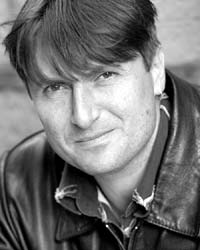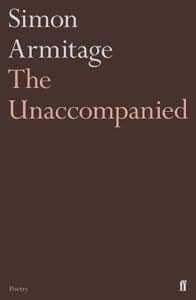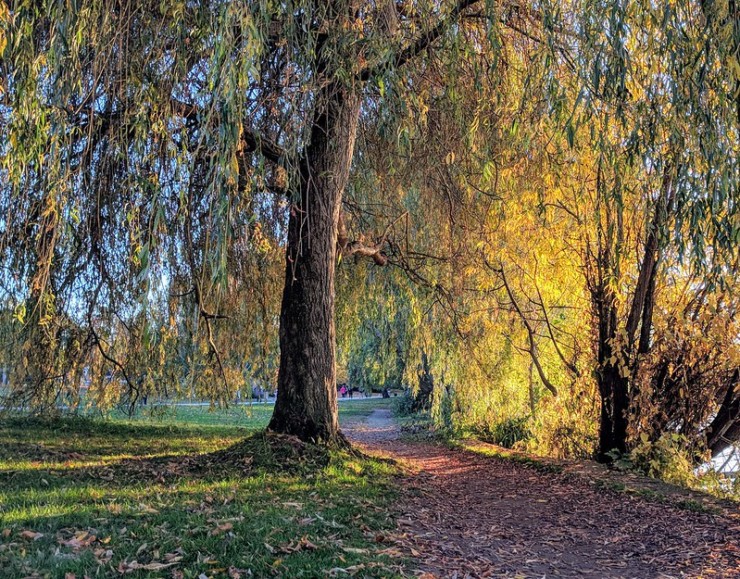In May, Queen Elizabeth II appointed Simon Armitage as the 21st poet laureate of the United Kingdom. Armitage’s literary and professional recognitions and accomplishments certainly merited the honor; not only had he published numerous collections of poetry, he had also published translations and retellings of classic British and Greek works.
British poet laureates don’t have an official length for term in office. The first, John Dryden, was appointed by King Charles II in 1668 and served for almost 20 years; Alfred Lord Tennyson was poet laureate for almost 42 years. More recently, the poets appointed have served about 10 years. Some of the better-known laureates include Robert Southey, William Wordsworth, John Masefield, John Betjeman, Ted Hughes, Cecil Day-Lewis, and Andrew Motion. Armitage’s immediate predecessor, Carol Ann Duffy, was the first woman appointed to the position.

Simon Armitage
The duties of the poet laureate are unspecified; it’s expected that they will write poems celebrating or memorializing great national events or significant occurrences. Tennyson, for example, wrote while he was in office what is probably the most famous of the poet laureate national poems, “The Charge of the Light Brigade.” Duffy wrote numerous poems as laureate, including celebrating the marriage of Prince William and Kate Middleton, the 60th anniversary of the queen’s coronation, climate change, and soccer player David Beckham. He even wrote a sonnet about a scandal over parliamentary expense accounts.
Armitage has published several collections of poetry, including The Dead Sea Poems (1998), Kid (1999), Killing Time (1999), The Universal Home Doctor (2004), Book of Matches (2010), Seeing Stars (2011), The Shout (2014), Paper Aeroplane: Selected Poems 1989-2014 (2015), and The Unaccompanied (2017). He’s written accounts of travels in Britain, including Walking Home: A Poet’s Journey (2013) and Walking Away (2016), and two novels, Little Green Man (2001) and White Stuff (2005). He’s also published translations and retellings of several classic works, including Sir Gawain and the Green Knight (2008), The Odyssey: A Dramatic Retelling of Homer’s Epic (2008), The Death of King Arthur (2012), The Story of the Iliad (2015), and The Last Days of Troy (2016).
The poems of Armitage’s most recent collection, The Unaccompanied, exhibit a poet at the top of his art. At first glance, the subjects seem a diverse collection—a beach wedding, a to-do list, gravity, kicking a mushroom, tractors, a bed, a chair, a nurse at a bus stop, the Holy Land. But look deeper, and one finds poems about a father, and all of these diverse subjects begin to make sense when seen through the lens of a man dealing with an ailing father and then his memory.
Poor Old Soul

and wants to wheel him to the park. I watch him
puzzling with the leather buttons
on his favourite coat, fingers like sticks of chalk.
Coming home from a week abroad I find him
hunched and skeletal under a pile of clothes,
a Saxon king unearthed in a ditch.
‘I ran out of biscuits,’ he says,
‘and the telly’s on—I couldn’t make it stop.’
When I throw back the curtains, morning
bursts like a water balloon before he can rig up
his tatty umbrella of epidermis and bone.
One of the most moving poems in the collection is the title poem, one that is ultimately about mortality. A man is wandering the streets at night when he hears a chorus of men singing “in the function suite of a shabby hotel,” following the directions from a conductor with a wand. They sing about wars and mills and mines, “songs from broken hymnbooks and cheesy films.” And then he hears his father’s voice rising from the chorus, and then his grandfather’s voice. And he knows that one day his own voice will join that chorus.
Simon Armitage is a fitting choice for British poet laureate.
Related:
Poets and Poems: Simon Armitage Translates “Pearl”
British Poet Laureate Carol Ann Duffy
Poets and Poems: Andrew Motion and “The Customs House”
British Poetry, British Poets, and Brexit
Photo by Andrew Larsen, Creative Commons, via Flickr. Post by Glynn Young.
__________________________

“I require all our incoming poetry students—in the MFA I direct—to buy and read this book.”
—Jeanetta Calhoun Mish
- Longfellow’s “Paul Revere’s Ride”: Creating a National Legend - April 17, 2025
- Poets and Poems: Katie Kalisz and “Flu Season” - April 15, 2025
- Poets and Poems: Michelle Ortega and “When You Ask Me, Why Paris?” - April 10, 2025

Leave a Reply